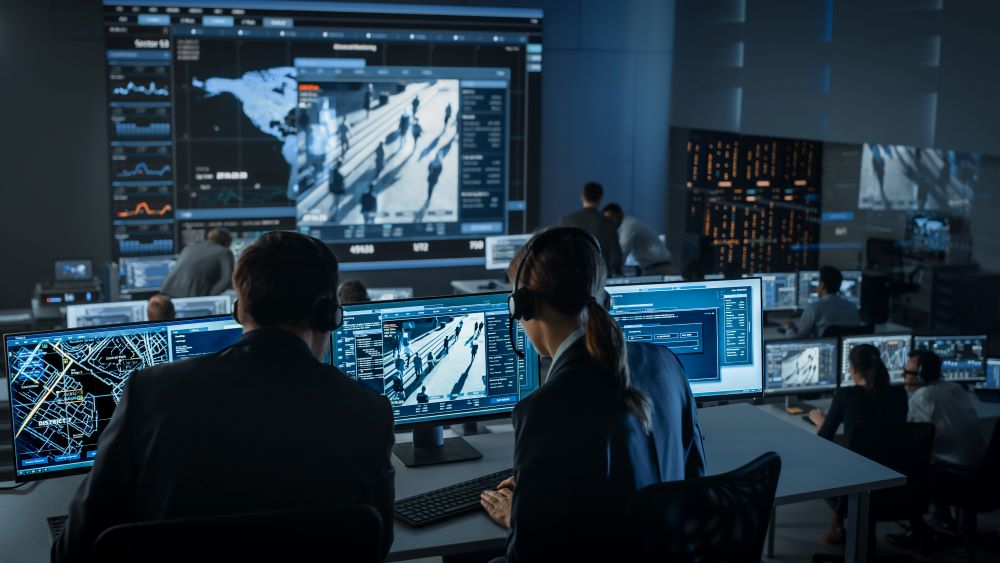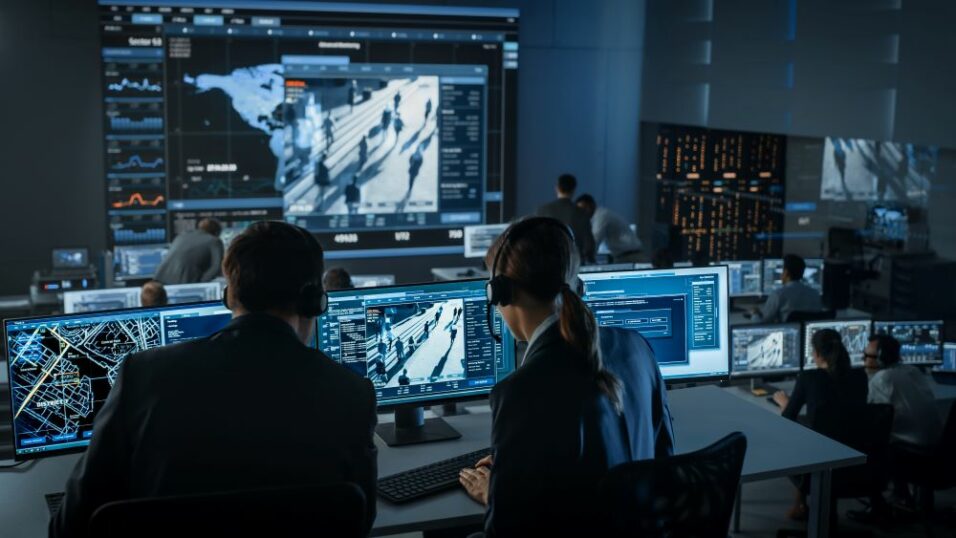



Protecting your business and people from terrorism
By Chubb | 25th September 2023




By Chubb | 25th September 2023
The UK will be better prepared for and protected from terrorist attacks under new draft laws published by the government in May. The draft Terrorism (Protection of Premises) Bill sets out the security measures that, under Martyn’s Law, venues and other organisations will have to meet to ensure public safety. The draft Bill will be subject to pre-legislative scrutiny by the Home Affairs Select Committee ahead of formal introduction.
In our latest blog, David Rowan, Sales Director at Chubb Fire & Security, explains how the legislation came about, the steps public premises and venues will be required to take to improve public safety, and how Chubb’s dedicated lone worker app SafeZone® can help keep people safe in the event of a terrorist attack.
What is Martyn’s Law?
The name Martyn’s Law is a tribute to 29-year-old Martyn Hett, who was killed alongside 21 others in the Manchester Arena terrorist attack in 2017. Since then, there have been a further 14 terror attacks in the UK, and according to the MI5, the current threat of terrorism to the UK remains substantial.
Martyn’s Law has been developed following public consultation and extensive engagement across industry, charities, local authorities, security experts and survivors – as well as Martyn’s mother Figen Murray and the Martyn’s Law Campaign Team and Survivors Against Terror – to draw up the new legislation.
Seventy per cent of the thousands who responded to the consultation agreed that those responsible for publicly accessible locations should take measures to protect the public from potential attacks.
Premises will fall under the scope of Martyn’s Law where ‘qualifying activities’ take place – which includes locations for entertainment and leisure, retail, food and drink, museums and galleries, sports grounds, public areas of local and central Government buildings, visitor attractions, places of worship, health, and education.
There are five requirements to Martyn’s Law: that spaces and places to which the public have access engage with freely available counter-terrorism advice and training; places must conduct vulnerability assessments; they must mitigate the risks created by the vulnerabilities; they must have a terrorism plan; and local authorities must plan for the threat of terrorism.
The Bill – and what it means for premises
The draft Terrorism (Protection of Premises) Bill describes the steps to be taken depending on the size of the premises and the activity taking place.
The standard tier will apply to public premises with a maximum capacity of 100 or more people, which can undertake low-cost, simple – yet effective – activities to improve preparedness. This will include terrorism protection training, information sharing and evaluating the best procedures to put in order to minimise impact, for instance, locking doors to delay attackers’ progress, or knowledge on life-saving treatments that can be administered by staff whilst waiting for emergency services.
An enhanced tier will focus on locations with a capacity of more than 800 people. High-capacity locations will also be required to undertake a risk assessment to inform the development and implementation of a thorough security plan and appoint a designated senior officer who must regularly review the security of the premises.
Under Section 15, ‘Security measures’ the draft Bill states that: “The person responsible for enhanced duty premises or a qualifying public event must ensure that all such reasonably practicable measures are in place in relation to the premises or event as might be expected to (a) reduce the risk or acts of terrorism occurring at, or in the immediate vicinity of, the premises or event, and (b) reduce the risk of physical harm to individuals if acts of terrorism were to occur at or in the immediate vicinity of, the premises or event.”
It goes on to say that the measures must include: “monitoring the premises or event and the immediate vicinity of the premises or event.” This could include the implementation of physical measures like CCTV and access control and processes to enable better vigilance and consideration of security.
The government is working closely with businesses and other stakeholders to ensure this legislation is proportionate whilst also being effective.
Prioritising lone worker safety
With over 200 years of experience delivering fire safety and security solutions designed to help businesses protect their most valued assets, Chubb understands the challenges employers face in keeping their people safe.
Under the Health and Safety at Work Act 1974, employers have a responsibility to protect the health, safety and welfare of their workforce. Neglecting this duty of care, even by a small margin, could lead to substantial legal implications, such as fines, imprisonment and reputational damage.
In the workplace, all employees are exposed to risks; however, working alone makes lone workers more vulnerable to harm as they face risks alone. Currently, in the UK, there are an estimated 8 million lone workers, making up 22% of the 31.2 million working population. Lone working is defined by the Health & Safety Executive (HSE) as work carried out by people who work by themselves without close or direct supervision.
The main types of risk lone workers face are accidents or emergencies carrying out a job, sudden illness, and physical violence from members of the public or intruders. Alarmingly, statistics from the Crime Survey for England and Wales indicate that as many as 150 lone workers are either physically or verbally attacked every day.
Under the Management of Health and Safety at Work Regulations, employers are obligated to manage the risks to lone workers; however, according to a recent survey of 1,300 lone workers and health and safety professionals, some employers are falling short. The survey explored how seriously employers take lone worker safety and found that 94% of companies gave themselves a 10 out of 10 rating. In contrast, just 45% of lone workers felt the same, and 33% believed other factors like deadlines and financial targets were considered more important than their safety.
SafeZone® – ultimate protection for your people
Chubb launched SafeZone, the award-winning cloud-based safety, security and emergency management app, which was developed with personal safety at its core.
SafeZone has the ability to raise alerts and communicate critical information at the touch of a button which, in the event of a terrorist incident, could save lives. The app provides real-time co-ordination and response, wearable tech and mass communication of emergency messaging – such as flagging up threats, how to mitigate a potentially threatening situation and information about how to escape.
Users – for example, people on a campus, healthcare facility or building site – can tap ‘first aid’ if in need of medical assistance, tap ‘emergency’ if they feel threatened or in need of urgent assistance or tap ‘help’ for general help and information.
When any alert is raised, the user’s location is shared with the operators at Chubb’s 24/7/365 remote monitoring centre. The operators can then connect directly to emergency services to provide the most appropriate assistance – allowing for a faster response time and potentially saving lives.
Safety alerts can also be sent directly to a device, with notifications tailored to the user’s location and respecting the phone’s volume settings. If it’s not possible to speak, a chat facility can communicate information and flag up the user’s geographical location. This can help to ensure that emergency resources are directed to areas where they are needed most.
The app also includes a check-in feature that allows lone workers to let others know they are safe and accounted for, which would ease the concerns of loved ones and reduce the workload for emergency services.
SafeZone can send an alert as an encoded SMS if there is no Wi-Fi or mobile data. If the user is in a different part of town or even travelling abroad, the app can flag up any important safety and security alerts to help keep the user safe.
The well-being section of the app, which collates information about numerous different services, can provide access to mental health resources and support for people who may be struggling emotionally in the aftermath of a terrorist incident.
With a single tap of the button, users are directed to a relevant webpage or phone number for assistance. The user is also given the option of a triage page, listing various additional services.
Services can all be tailored based on a combination of who presses the button, where the button is pressed and when it is pressed – which is particularly useful for groups of individuals identified as high-risk.
Learn from the people safety experts
In July, Chubb hosted its first SafeZone webinar for existing customers, which introduced how the solution works and explained the many benefits for businesses providing round-the-clock protection for their employees.
Stuart Purton, Head of Sales Training at Chubb, was joined by experts from CriticalArc – the developers of the app, and Guy Miller from Kent Community Health NHS Foundation Trust (KCHFT), who shared real-life examples of using the Enterprise Solution of SafeZone within the Trust and how it helped them achieve their health and safety goals.
KCHFT was the first UK health service provider to adopt SafeZone technology for lone worker protection, staff safety, mass and targeted communications, and emergency response coordination.
Since implementing the app, KCHFT has benefited from rapid emergency assistance for its 5000+ staff – including lone workers out in the community – with specialist help available regardless of the user’s location.
As well as improving personal safety for thousands of healthcare workers across Kent, senior managers have found that the technology has delivered far-reaching efficiency benefits – just a couple of examples include better workforce management and improved communication and coordination between local care teams and their team leaders.
Further savings have been generated by SafeZone functions, including ‘tip reporting’, which has made it easier for staff to send early notifications highlighting issues – anything from broken equipment to a spill in the stairwell that could cause an accident.
SafeZone has enabled the trust to set up multiple user-groups in specialist categories so that alerts can be directed to the most appropriate manager, depending on whether the staff member is asking for routine advice, reporting a non-urgent problem or calling for emergency response.
Chubb’s 24/7/365 alarm receiving centre ensures seamless monitoring and support for the healthcare teams at night, maintaining an uninterrupted response, even when the Trust’s security team is not immediately available. Where appropriate, Chubb’s controllers provide fast and effective advice for staff requesting help and contact the appropriate emergency services when further assistance is required.
SafeZone is already used by over 45 per cent of universities in the UK to improve safeguarding for students and staff, and many of its capabilities will be as transformative for the healthcare sector.